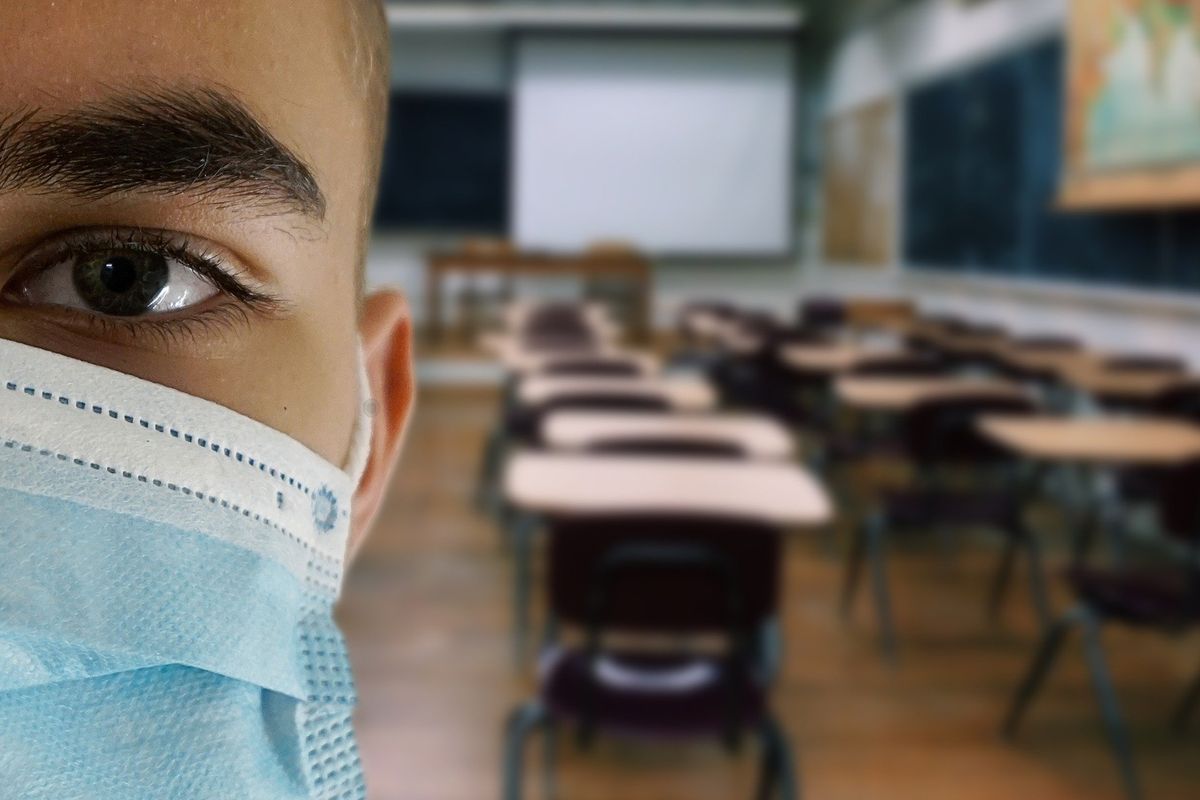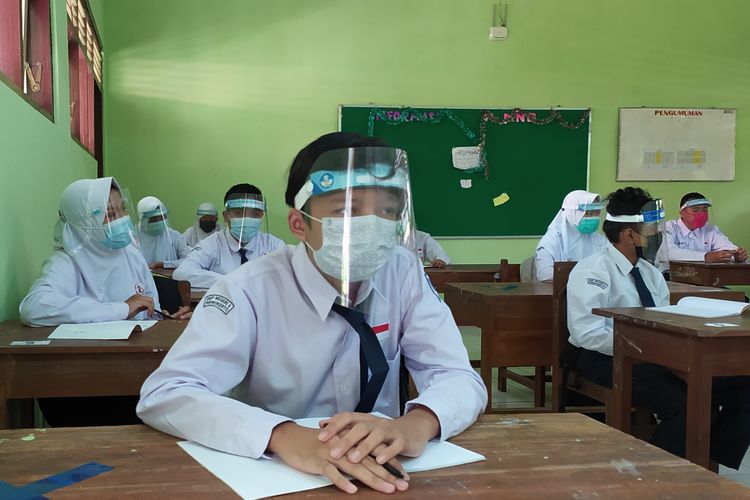Jakarta to Start Trial Runs for Face-to-Face Classes in Schools

JAKARTA, KOMPAS.com – The Jakarta provincial administration is set to start trial runs for face-to-face learning in schools throughout the capital this week, three months before the government starts the step at the beginning of the 2021-2022 academic year next July.
Jakarta Education Service head Nahdiana announced that the trial run for face-to-face learning will last from April 7 to 29, 2021.
Adjusting to post Covid-19 circumstances
“The classes will be held once a week, lasting two hours between fourth grade to 12th grade. The school building will then be closed for sterilization,” she said on Monday.
“The capacity of classes will up to 50 percent of their capacity. Social distancing between students will be practiced with distances of 1.5 meter between pupils. ”
Education Department for Central Jakarta official Uripasih reiterated Nahdiana. He noted that the classes are designed to prevent the transmission of Covid-19 in the classroom, and provided a glimpse of how the policy will be carried out.
Also read: Indonesia Allows Limited Face-to Face Classes for 2021-2022 Academic Year
“[The classes] will be held in two sessions from 7 am to 9 am, and 10 am to 12 noon,” Uripasih said. “There will be no breaks, so [the students] will head home after class.”
Urip added that each grade will go to school according to a designated day and hour. “Each class only gets two hours a week on different days. For instance, fourth grade will be in on Wednesday, fifth grade will be in on Thursdays, while sixth grade is in on Fridays,” he noted.
“The classes at the face-to-face classes are common subjects like Math, Indonesian and Natural Sciences, while other courses will continue to be taught online.”
 The first day of face-to-face classes in Purwokerto, Banyumas Regency, Central Java, Monday (5/3/2021), similar to those that will reopen in Jakarta Wednesday
The first day of face-to-face classes in Purwokerto, Banyumas Regency, Central Java, Monday (5/3/2021), similar to those that will reopen in Jakarta Wednesday Conveying reservations
The Indonesian Commission for the Protection of Children [KPAI] supports the Jakarta provincial administration’s decision to start face-to-face learning. However, the commission still conveyed their reservations.
“According to KPAI’s findings, many schools in Jakarta do not have temporary isolation rooms to isolate [students or faculty and staff] who has temperatures of 37.3 Celsius and up,” said KPAI Commissioner Retno Listyarti.
“They also have no changing rooms for where students and staff that take public tr(ansportation can change their clothes, or have infrastructures in place for social distancing. Most of all, the schools generally do not have health protocols or SOPs for new normal adaptation.”
While the KPAI noted that…
- Nadiem Makarim
- Yaqut Cholil Qoumas
- Budi Gunadi Sadikin
- SOP
- education
- tracing
- testing
- Indonesia schools
- Tito Karnavian
- Indonesia Covid 19
- education in Indonesia
- education 4.0
- indonesia schools reopening
- indonesia face-to-face classes
- indonesia health protocols
- face to face learning permission
- face to face learning vs online learning
- face to face learning disadvantages
- face to face learning advantages
- face to face learning indonesia
- face to face learning activities
- face to face learning system
- face to face learning during pandemic
- face to face learning pros and cons
- face to face learning process
- face to face learning program
- face to face learning covid
- face to face learning effectiveness
- face to face learning experience
- face to face learning examples
- face to face learning news
- limited face to face learning
- online classes
- face to face learning in Indonesia
- face to face classes 2021
- face to face classes indonesia
- face to face classes meaning
- face to face classes vs online classes
- face to face classes on july 2021
- face to face classes permission
- face to face classes in schools
- face to face classes trial
- face to face classes jakarta
- face to face classes info
- face to face classes latest news































